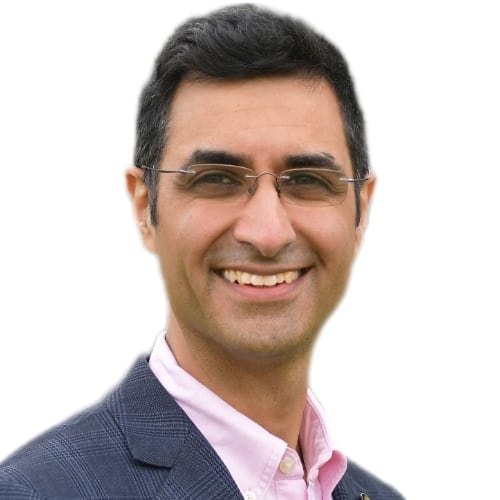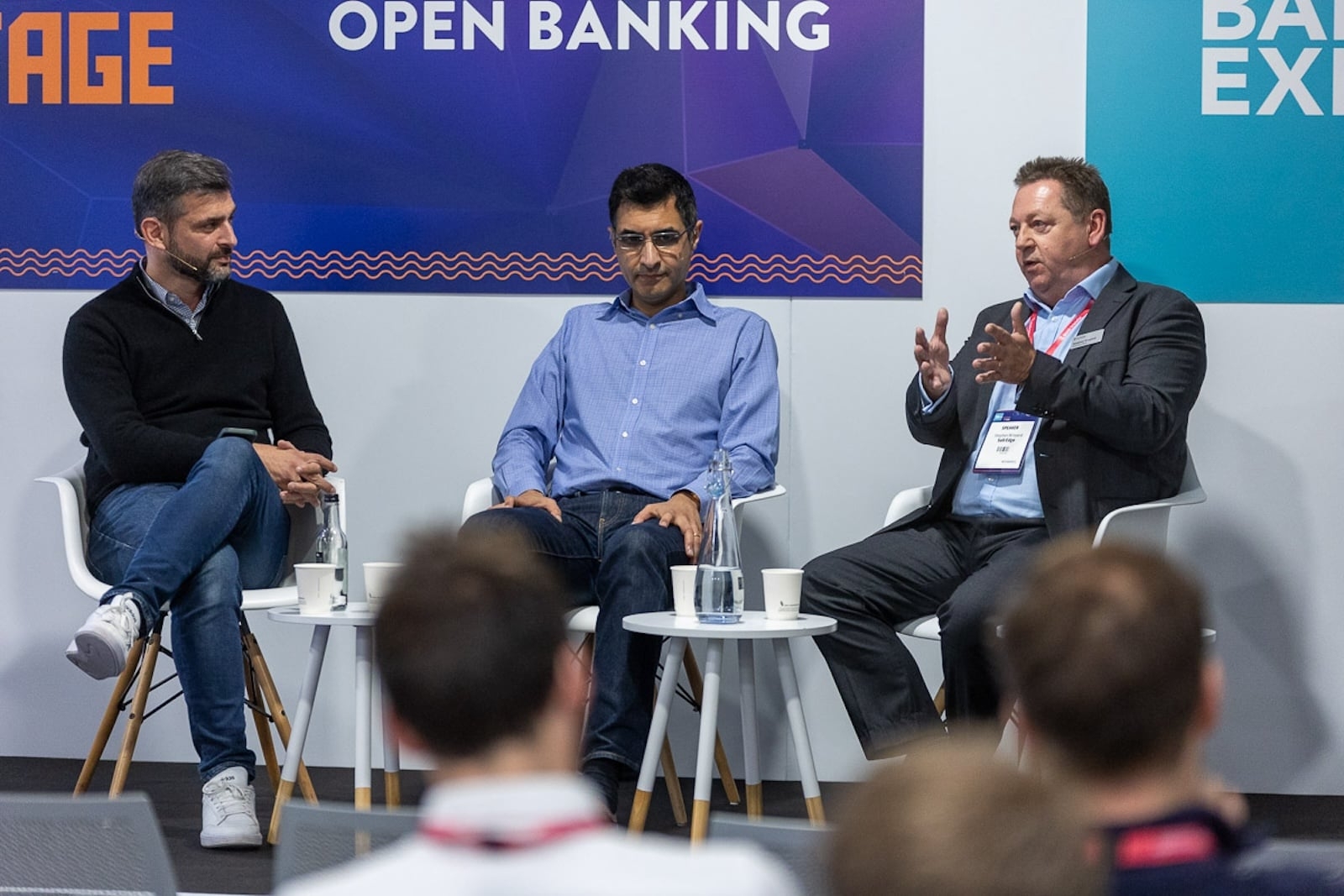How can banks and financial institutions “cut through the noise” around generative AI, blockchain and the “future tech-verse” and identify what to focus on, was the question put to Salt Edge and Lloyds Banking Group at Open Banking Expo UK and Europe.
Georgios Kolovos, director, payments and artificial intelligence at ExploreAI, moderated the Powerhouse Panel on Day Two of the Expo in London, titled ‘What are within the Open Banking realms of possibility?’.
Asked how he sees his clients prioritising Open Banking versus GenAI or blockchain, Stephen Winyard, chief sales officer at Salt Edge replied: “It depends very much on who that company is, what they’re trying to do and what they’re trying to take to the market. But we see a very broad spectrum of use cases.
“There are very simple things that Open Banking helps them with – the concept of being able to take a payment.”

Jehangir Byramji of Lloyds Banking Group
Jehangir Byramji, senior innovation lead, emerging technology at Lloyds Banking Group, explained that, to try to make sense of all the emerging technologies “you need to start with your customers and clients” because they will “direct what is going to succeed or not”.
“The important thing is to understand where it is hype and where is it really starting to show that it can have a positive effect,” he added.
“There is obviously a lot of hype. You need to be able to cut through the noise. How do you do it at Lloyds and identify what are the right things to focus on at the moment?” asked Kolovos.
Byramji said: “You need to have a culture that is willing to understand the fact that it’s going to be a world of continuous change.
“Banks have gone through transformation programme after transformation programme. What that really tells you is you need to have an organisation that’s used to change, that’s willing to learn, [and] to take that experimentation mindset.”

Stephen Winyard of Salt Edge
In response to an audience question about when individuals will be able to monetise their own data, Salt Edge’s Winyard acknowledged that there are companies that are trying to “find ways to reward us as consumers to share our data”.
He added: “It’s about trying to put more control in our hands, so we have more control of the data. I don’t think it’ll be long – utilising blockchain – where you might tokenise your age, tokenise your identity, that you’ve got control of.
“You’ve then got AIS feeds with Open Banking – this is your information that you are consenting to share. At some point that is very valuable, someone has to find a way to pay us.”
The panel discussion took place on the Future Stage, chaired by Thomas Bull, a partner at EY.










